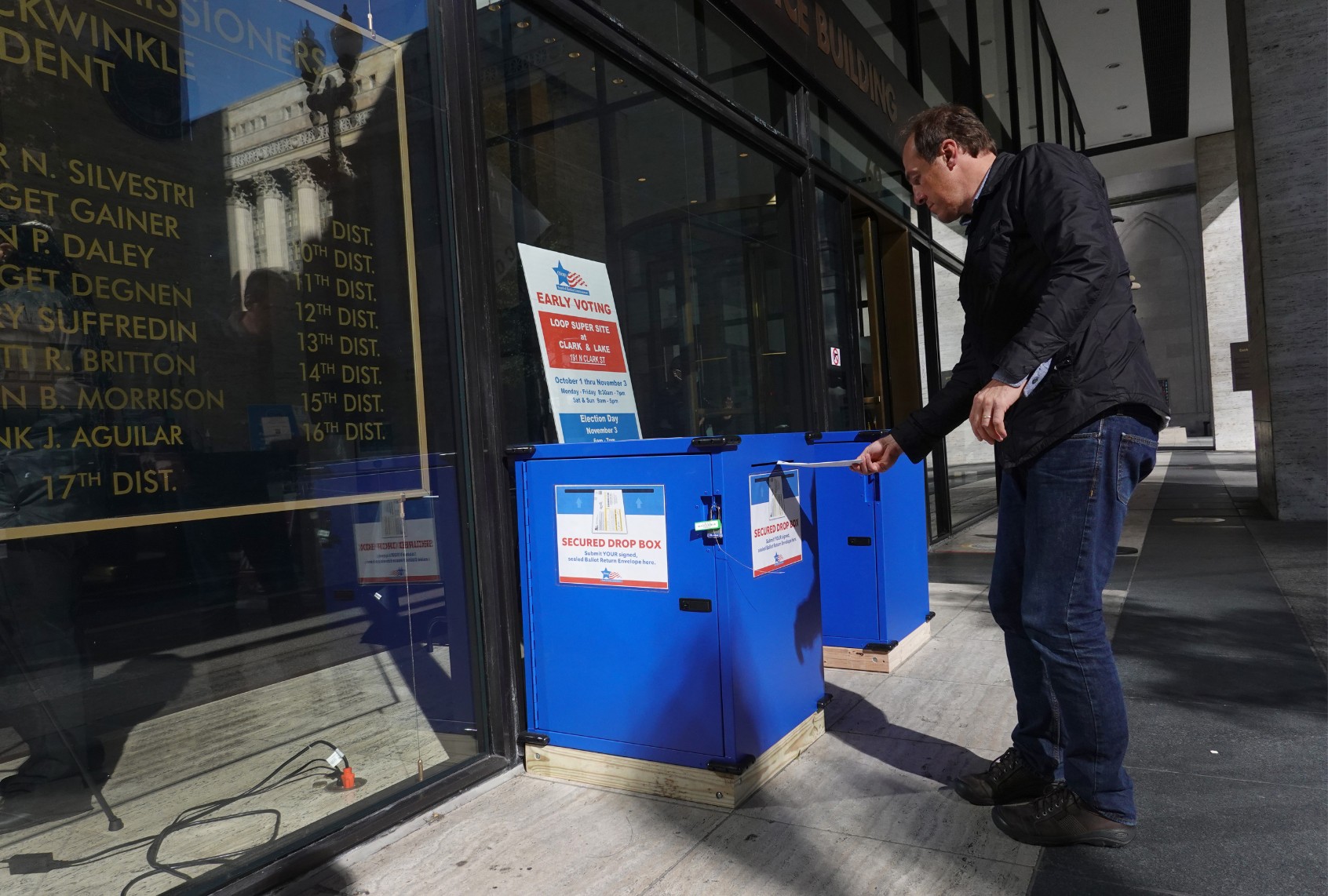The Supreme Court is hearing a case on Wednesday where, in an unusual move for a left-leaning group, the American Civil Liberties Union is supporting a Republican congressman, Rep. Mike Bost, R-Ill., in a lawsuit over mail-in ballots. And the ACLU is doing so despite opposing Bost’s particular claims, arguing that a ruling against him could hurt voting rights groups in the future.
The suit arises from a complaint from Bost, who claims that Illinois’s mail-in ballot deadline violates federal law. In the state, mail-in ballots received up to two weeks after in-person voting has ended are counted as long as they have been completed and mailed by Election Day. Bost argues that this effectively extends Election Day and that residents who vote in person are having their votes “diluted by illegal ballots received in violation of the federal Election Day statutes.”
While the Supreme Court agreed to hear the case, the issue that it agreed to address wasn’t Bost’s claims over the alleged extension of Election Day. Rather, the court said it would hear arguments concerning whether or not the congressman has standing to bring the case.
To prove standing, Bost claimed both that counting the votes of all voters, including those who chose to vote legally by mail, would harm his electoral prospects and that he was harmed because his campaign had to expend resources to maintain an operation past Election Day, in what is known as a “pocketbook injury.”
In response to Bost’s claims, the Democratic Party of Illinois, supporting the Illinois State Board of Elections, argued that Bost failed to show that “he faces any competitive injury” resulting from the election rules and that Bost failed to show that his alleged pocketbook injury is “causally related to the law” in question.
We need your help to stay independent
At this point, the ACLU got involved, filing a brief alongside their Illinois affiliate, as well as the Rutherford Institute and the League of Women Voters. Ari Savitzky, a senior staff attorney at the ACLU, told Salon that he fears a ruling against Bost on the issue of standing could set a precedent that would close courthouse doors to advocacy groups and candidates in the future.
“We couldn’t disagree more as a matter of law and policy on the merits, but the question is whether Congressman Bost can even get inside the courthouse. And what we have also seen is that it is harder and harder for civil rights groups and voting rights groups to get their claims heard on the merits as well. And so we think that a rule that prevents Congressman Bost from even getting his case heard at the initial stage is not the right approach,” Savitzky said.
Bost’s lawsuit was filed in advance of the 2022 midterms and then delayed until after the election, before it was ultimately dismissed in July 2023. In the ruling from the district court that heard the case, the judge found that the Bost did not have standing because he failed to show “concrete, particularized, and imminent injuries.”
Start your day with essential news from Salon.
Sign up for our free morning newsletter, Crash Course.
Savitzky said that while the ACLU didn’t believe his claims about his chances in the election would be sufficient to bring the case, it does think the initial ruling was wrong to dismiss his claims over the cost of keeping his operation running. Civil rights groups like the League of Women Voters often cite the same or very similar activities when they sue in election cases, Savitzky noted.
“With civil rights groups, when they bring lawsuits on behalf of themselves, like when the League of Women Voters brings a lawsuit or another group that does, you know, pro bono work, that’s what they’re asked to do. They put in declarations and facts and ultimately, maybe sit for depositions and provide documents, and they do what they have to do to show how they were affected. Here’s how we change the way that we’re deploying resources. Here’s the staff time and hours that we diverted to deal with, you know, to deal with the effects of this policy,” Savitsky said.
Read more
about this topic


